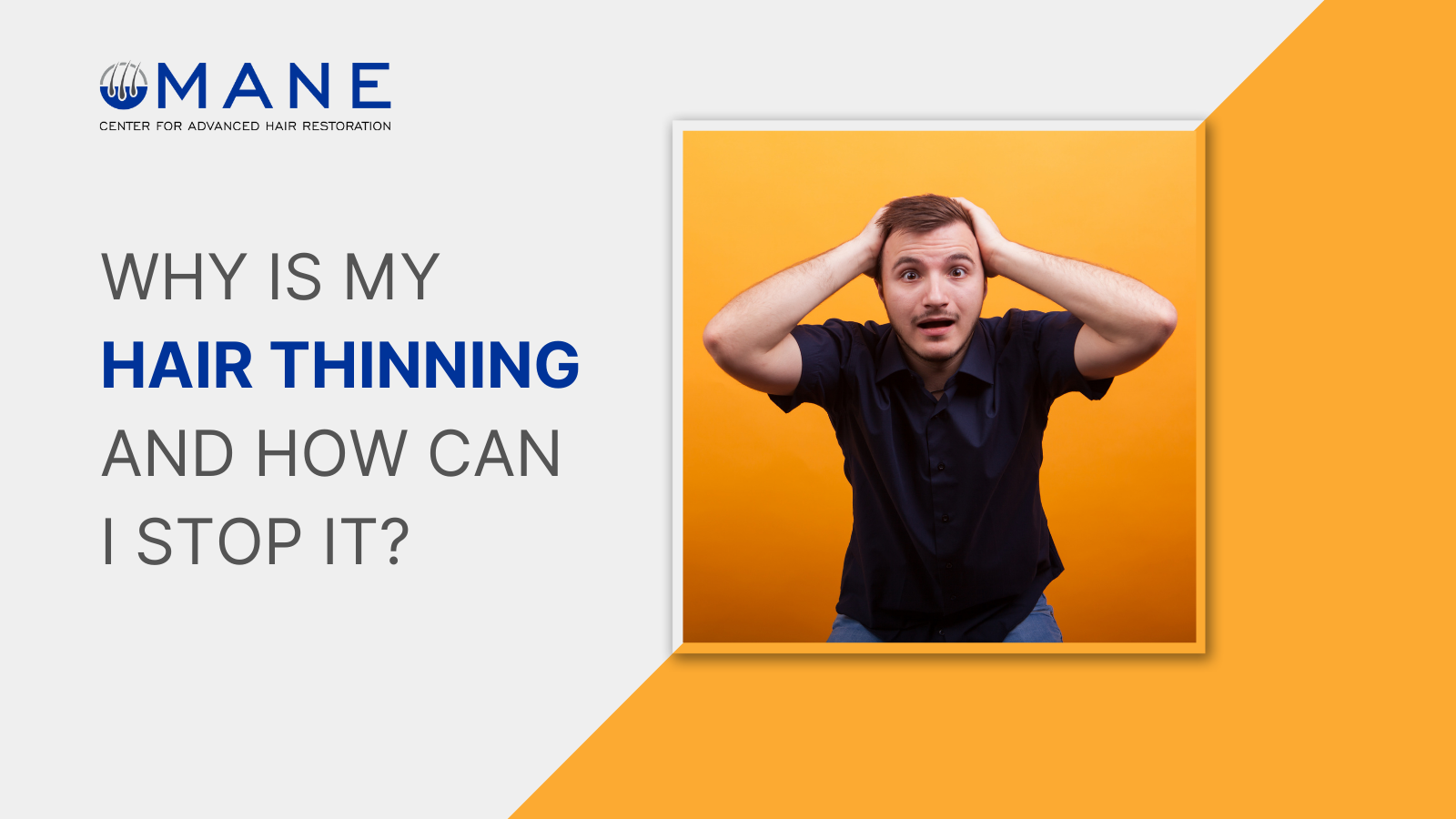Thinning of hair is a very common phenomenon faced by millions of men and women across the globe. Hair thinning occurs when there is minor to moderate loss of hair, but does not necessarily lead to baldness. Nevertheless, hair thinning can alter your appearance and bring a noticeable change in your hair density, leading to a lack of self-esteem and confidence.
What Are the Causes of Hair Thinning?
As per the
American Academy of Dermatology (AAD), shedding 50 to 100 hair strands in a day is normal. If you are shedding more than this, your hair could be thinning. A considerable loss in hair volume can be linked to a number of factors, including hereditary hair loss, age, lifestyle habits, poor diet choices, nutrient deficiencies, vitamin deficiencies, or side effects of medical treatment.
Androgenetic alopecia also referred to as male or female pattern baldness, is one of the main causes of hair thinning and accounts for hair loss in an estimated
30 million women and 50 million men in the US. In females, the hair thinning begins at the crown of the head, while in males, the hairline begins receding from the forehead, stretching to the back of the head.
Your lifestyle also has an impact on your hair volume. Exposing your hair to harsh products and treatments like hair color, bleaching agents, hair gels, perms, and so on can damage the hair follicles. Tying your hair in a tight bun or a ponytail can also cause breakage of the hair follicles, leading to hair thinning.
Poor diet choices can affect your hair health. Proteins, nutrients, minerals, and vitamins are essential to promote the growth cycle of the hair follicles.
Therefore, it is essential to maintain a varied, healthy, and balanced diet to ensure that your body is getting the nutrients it needs to sustain healthy hair follicles.
Medical conditions may also cause your hair to thin over a period of time. Some of these may include pregnancy, hormonal changes, side effects to medical treatment, immune disorders, drastic weight loss, and more.
How to Stop My Hair from Thinning?
Once you know what is causing your hair to thin, it becomes easier to treat, control, and stop it. Therefore, it is critical to get your hair loss diagnosed by a dermatologist first. They can help detect the underlying cause and offer you medication or suggest a hair loss treatment plan accordingly.
The treatment could include medications like Minoxidil and Finasteride, which are FDA approved drugs popularly used to treat androgenetic alopecia. Your doctor may even recommend making changes to your diet, asking you to include lots of proteins, vitamins, and minerals that are essential for healthy hair growth. Foods such as eggs, fatty fish, walnuts, mushrooms, and Brazil nuts are excellent for hair growth. Scalp massages and essential oils are also known to boost hair growth and promote blood flow in the scalp. However, before beginning with any treatment, it is essential to get your hair loss pattern diagnosed by your dermatologist.
If you are looking for the best hair thinning treatment in Maryland, our expert professionals at the Mane Center for Advanced Hair Restoration can assist you with the guidance you need. Our team is known to deliver the most satisfactory results when it comes to
hair restoration treatment in Chevy Chase, MD.


